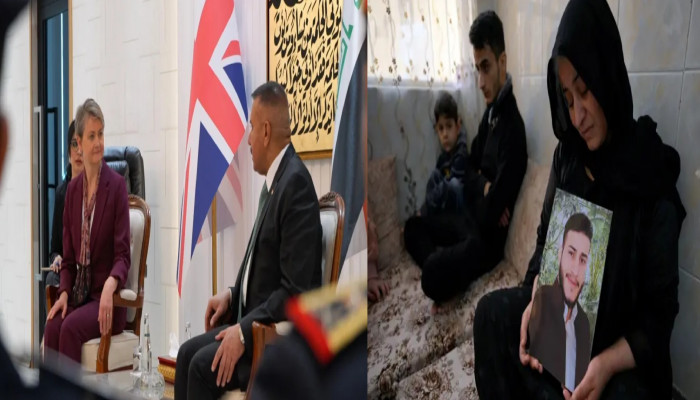UK, Iraq sign agreement deal to curb illegal migration and smuggling gangs
- In Reports
- 06:12 PM, Nov 29, 2024
- Myind Staff
Britain and Iraq have made a new agreement to fight people smuggling gangs responsible for sending thousands of migrants across the Channel in small boats.
During her three-day visit to Iraq, Home Secretary Yvette Cooper signed the agreement, which also aims to speed up the process of returning Iraqi asylum seekers who have been denied entry to the UK. Cooper met with officials from both the Iraqi federal government in Baghdad and regional leaders in Kurdistan, where many smuggling gangs operate. The plan includes sharing more intelligence and conducting joint law enforcement efforts to catch and prosecute more smugglers.
As part of an agreement, the UK will provide £300,000 to help train Iraqi law enforcement in border security, specifically to combat organised immigration crime and drug trafficking. Additionally, £200,000 will go to the Kurdistan region of Iraq to improve border security and address irregular migration. The UK’s Home Secretary was accompanied by Martin Hewitt, the new Border Security Commander, who met with his Iraqi counterpart. Both will play key roles in ensuring the success of the agreement.
In Baghdad, she had a half-day meeting with Iraq's Interior Minister, Abdul Amir al-Shammari, before visiting the Iraqi Human Trafficking Centre. The Home Secretary also toured a police college, where she was honoured as a guest at a parade of over 2,000 newly trained Iraqi officers.
The agreement is the government's first major effort to address people smuggling at its source, rather than just focusing on stopping boats in the English Channel. Iraqi migrants are often among the top nationalities attempting to reach the UK and many people smuggling operations in Europe are run by Iraqi Kurds. The new deal between the UK and Iraq is aimed at strengthening cooperation between the two countries. It will include a campaign to counter smuggler messages on social media, warning Iraqis about the dangers and realities of travelling to the UK illegally.
A task force of experts from both countries will work together to improve Iraq’s biometric border controls, making it easier to identify migrants without proper documentation. The two governments also agreed to work together to ensure that Iraqi asylum seekers who are rejected in the UK are returned to Iraq quickly, by cutting unnecessary bureaucracy and improving technology. However, the home secretary did not specify how many Iraqis would be sent back or how soon.
She said, “We think this partnership is really important because it includes training, capability building, information sharing in order to go after these criminal gangs who are profiting from undermining border security, profiting from putting lives at risk.
"They've been operating out of the Kurdish region in Iraq and having that law enforcement cooperation across borders is crucial to going after gangs who operate across borders as well." Sir Keir Starmer spoke at a Downing Street briefing on Thursday, calling the agreement with Iraq a "world-first" that would help stop people smuggling gangs and improve border security. He explained that the funding for Iraqi law enforcement would address the issue before it even reaches the UK.
Diplomats recognise that there are many uncertainties around this plan. Smuggling networks might quickly replace leaders who are arrested, and there could be challenges in getting various Iraqi law enforcement agencies to work together. Additionally, efforts to stop migration through awareness campaigns may be less effective compared to reports from family and friends already in the UK.
Abdul Amir al-Shammari, Iraq's interior minister, emphasised that the new deal would assist in addressing irregular migrations and smuggling gangs. "The cooperation will involve comprehensive training, exchange of expertise and intelligence coordination in tracking wanted individuals," he said to the BBC. “The United Kingdom is a significant country for Iraq and a key partner. We hope this cooperation will serve as a starting point for broader collaboration across all ministries.”







Comments